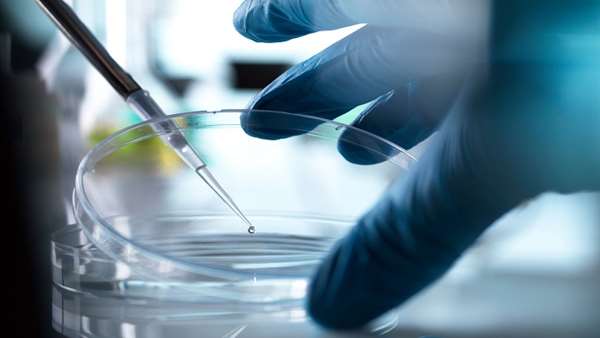Trump administration halts fetal-tissue research by government scientists
US President Donald Trump’s administration is ending fetal-tissue research by government scientists and placing restrictions on academic researchers seeking grants from the National Institutes of Health (NIH) for studies involving fetal tissue.
US President Donald Trump’s administration is ending fetal-tissue research by government scientists and placing restrictions on academic researchers seeking grants from the National Institutes of Health (NIH) for studies involving fetal tissue.
The administration said on 5 June that it will set up an ethics-review board to evaluate each NIH grant application that would support research with fetal tissue, which is collected from elective abortions. But the government has already decided against renewing its contract with a laboratory at the University of California, San Francisco (UCSF), that uses fetal tissue to study HIV.
“Promoting the dignity of human life from conception to natural death is one of the very top priorities of President Trump’s administration,” the Department of Health and Human Services (HHS) said in a statement.
The announcement comes after a sustained push by abortion opponentsto limit scientific research with fetal tissue — despite warnings from researchers that using the tissue is the only way to study some health problems. Scientists employ fetal tissue to explore topics as diverse as infectious disease, human development and disorders of the eye.
“It’s a decision that’s going to set back research,” says Andrew McMahon, a stem-cell biologist at the University of Southern California in Los Angeles.
McMahon is studying ways to grow kidneys from human stem cells. He says that the only way to determine whether he and his colleagues have successfully mimicked natural development is to compare their proto-organs to kidneys in fetal tissue. Although biomedical research is often done using mice as proxies for people, mouse kidneys are too different from human kidneys to use in McMahon"s work.
Since September 2018, the HHS has been reviewing all fetal-tissue research funded by its constituent agencies, including the NIH and the Food and Drug Administration. The HHS contract with the UCSF lab — which tests HIV treatments in mice with immune cells modified with human fetal tissue — expired in March. The department then agreed to extend it until 5 June, but now says it will let the arrangement lapse.
The government"s decision is “politically motivated, shortsighted and not based on sound science”, said UCSF chancellor Sam Hawgood in a statement. “Today"s action ends a 30-year partnership with the NIH to use specially designed models that could be developed only through the use of fetal tissue to find a cure for HIV.”
Questions multiply
The Trump administration policy directs scientists at NIH laboratories to stop conducting research with fetal tissue once their current supplies of the material run out. The HHS says that this restriction will affect three government research projects.
The approximately 200 research projects supported by current NIH grants but conducted at other institutions will not be affected by the policy. But the HHS says that any new grants or grant renewals must be submitted to an ethics advisory board “to review the research proposal and recommend whether, in light of the ethical considerations, NIH should fund the research project — pursuant to a law passed by Congress”.
The law in question calls for an ethics board with 14–20 members, of whom one-third to one-half are scientists with “substantial accomplishments in biomedical or behavioral research”. The board"s members, who would be appointed by HHS secretary Alex Azar, must also include a theologian, an ethicist, an attorney and a physician.
Lawrence Goldstein, a neuroscientist at the University of California, San Diego, says that the addition of this extra review could effectively end federal funding for fetal-tissue research.
“It’s all a matter of who gets appointed and how politically biased it is,” he says. “I’m aware of several very important research projects that will be up for renewal in the next few years and I"m afraid that a biased board is going to kill valuable research. If there"s a reasonable balance, there"s some hope.”
Reference:https://www.nature.com/articles/d41586-019-01783-6





ارسال به دوستان